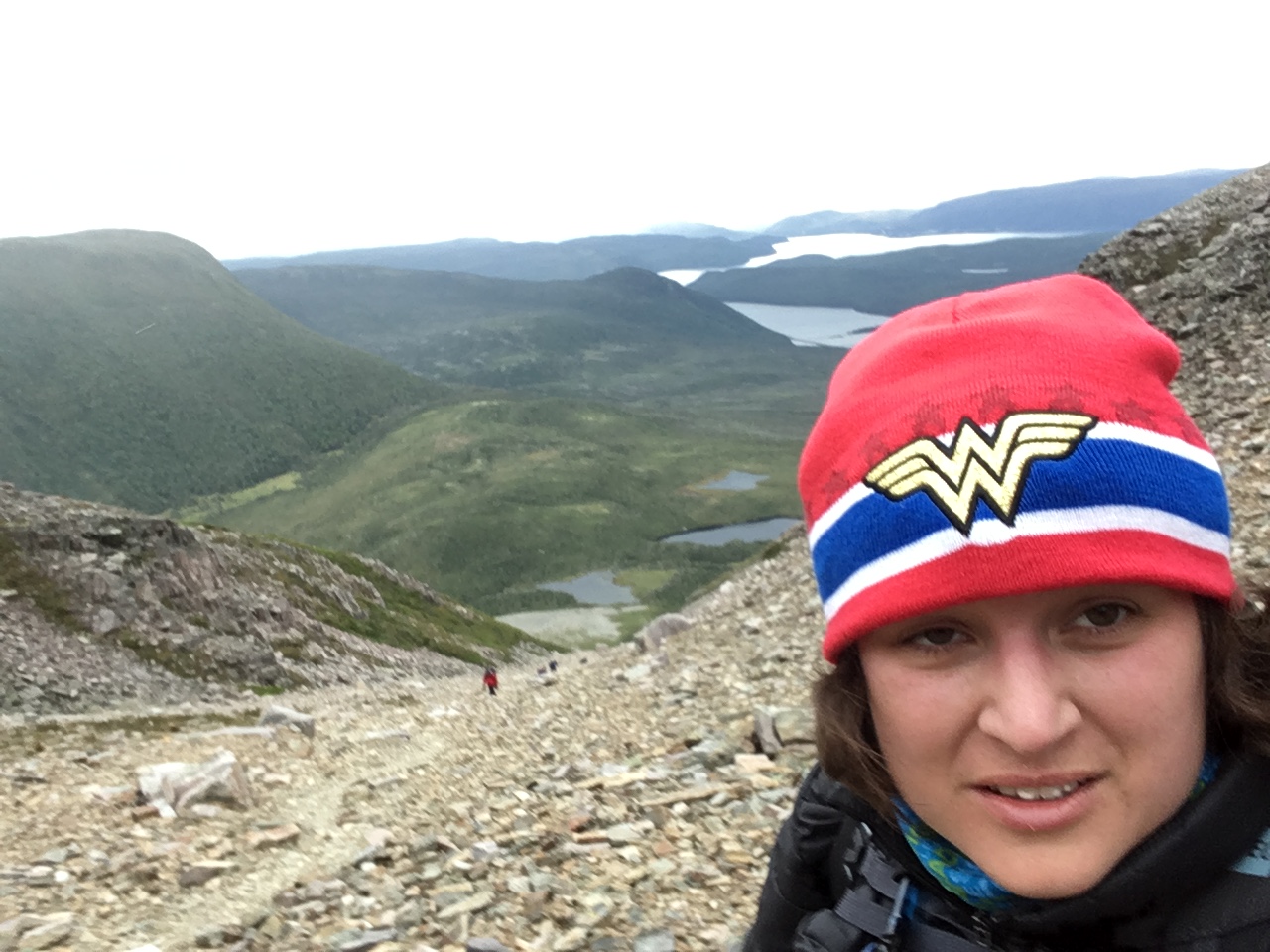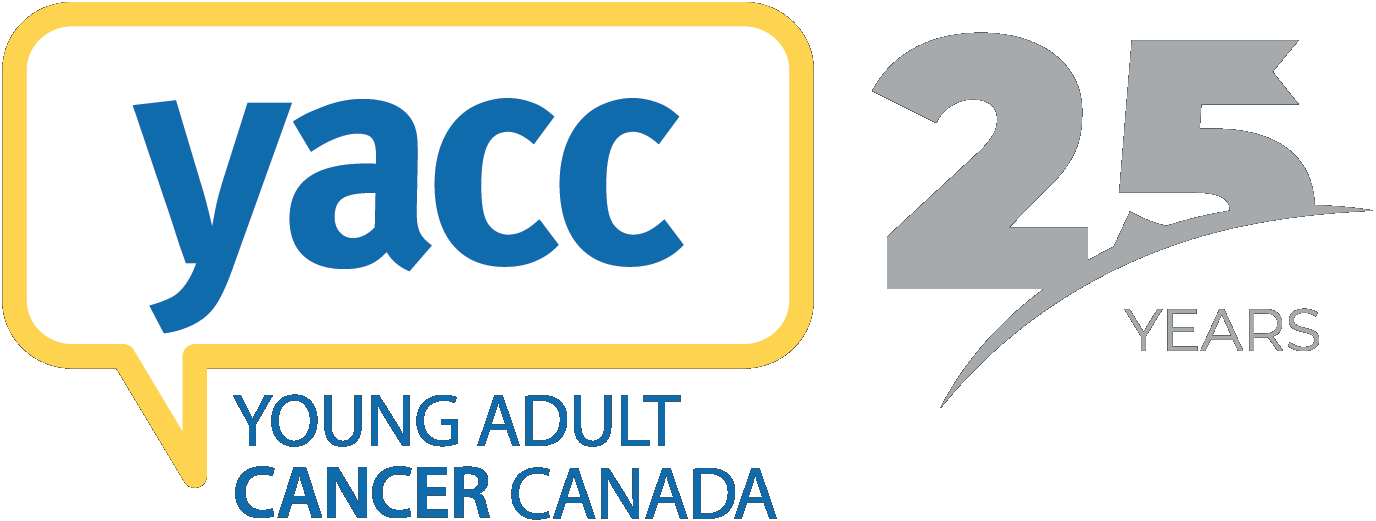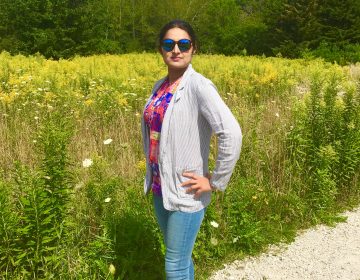
Sarah Hunt
Name: Sarah Hunt
Age: 31
City: Cambridge, ON
What was your diagnosis?
Myxoid Liposarcoma on the nerve bundle of my upper right arm
What year was it? What was your age at the time?
I was diagnosed in April 2017, the day before my 30th birthday.
What is something you’ve done that you’re really proud of?
I have become a para athlete and qualified to go to the Canada Games in my first year of cross country ski racing. I ski with one pole and the other arm in a sling from the damage left by cancer and treatment. I had never even skied before this winter, so I’ve taken many big steps.
What is a top item on your life to do list?
Travel the world, learn to stop saying no, and take all the opportunities presented to me.
What are your hobbies?
Bootcamp, cycling, doodling, painting.
Your diagnosis:
What was your life like before your diagnosis?
I graduated with my masters and worked as a speech language pathologist for just six months before being diagnosed. I was working in my dream job and attending bootcamp four days a week up until the day of diagnosis. I was getting up and going through the routines of day to day. I caught every cold and flu that winter leading up to diagnosis, but blamed it on being new to working with kids.
How did you find out you were sick? What led to your diagnosis?
Upon graduation, my dad and I went on a week-long back country canoe trip in northern Ontario. When we returned, I was checking myself over for ticks. The good news was that I found no ticks or lime disease, but the bad news was I found a lump in my arm that turned out to be cancer.
It took eight months to get the lump diagnosed, and it went from the size of a pea to three-inches by time it was diagnosed. The fast growth of the “cyst” in my arm is the only reason I happened to get diagnosed.
What were your first thoughts when diagnosed?
Two polar opposites: they were wrong, yet relieved that they figured out what it was. I believe I was also in shock and continued to be for over a year after.
In which hospitals were you treated?
Mount Sinai hospital in Toronto and London Regional Cancer Centre.
What did your treatment consist of?
Medical: I had a series of 25 high dose radiation treatments and three surgeries in less than five months. The tumour was located in my upper right arm along my tricep muscle and the nerve bundle. I experienced complications along the way resulting in lymphedema, nerve damage, complex regional pain disorder, and continued loss of function in my arm.
I have had a hard time with the emotional acceptance of my chronic cancer diagnosis as well as the long list of other diagnoses that followed. I have always been a person with anxiety, but this put me over the edge. I now experience panic attacks, flashbacks, and depression. I was always the strong person, and to no longer be able to be that person was hard. I have now had the opportunity to work with social workers, psycho therapists, and a psychiatrist to learn about how to live — and thrive — with the fact that these diagnoses were not going anywhere.
What is your current medical status?
I am technically “no evidence of disease.” My cancer is a gene mutation, so I will never be cancer free. I go for tests and appointments every three months to look for any new tumours growing in my body.
Life after cancer:
How is life different for you now post diagnosis?
My life is very different post diagnosis. I am someone living with chronic cancer, and as much as I try to move forward, I have constant reminders. I have been left with a physical disability from the radiation and limb sparing surgery. I can no longer lift my arm above my shoulder, I have constant pain in my arm, and lack motor control in parts of my hand. I also deal with swelling in my arm caused by lymphedema. It makes me have to plan ahead for many things I took for granted when I had two working hands and arms. It has also pushed me to train harder in bootcamp to show others wrong. I can do things, I just do them differently.
Emotionally, I have really struggled with the diagnosis of a chronic cancer. I have been angry at the universe, sad, and anxious. I have also had some of the best days of happiness, joy, and a greater appreciation of little things. YACC has really helped me to get through all these emotions.
Socially, things in my life changed greatly. I had recently moved back to the city I grew up in before diagnosis, and I didn’t know a lot of people anymore. I felt like I had a lot of acquaintances, but struggled with finding who my friends were. Cancer helped me to figure this out. I have four really close friends who were strangers or acquaintances before diagnosis. They stepped out from the shadows to go with me to difficult appointments, do my home nursing care after working her own 12-hour nursing shifts, and were my cheerleaders when I was down. I am also fortunate to have met so many amazing friends through YACC who I know are there even when I just need to talk on the phone, who get it, or who lay in bed and cry with me until I fell asleep like my Retreat Yourself roommate.
What is the toughest part about having cancer as a young adult?
I spent all my time in treatment feeling alone. I desperately wanted to meet someone else like me. I felt out of place. During treatment, I lived in a program where the next youngest person had sons my age and became my cancer mom. I still long to find another younger person with the same diagnosis, but so much is the same across cancer diagnoses, and I appreciate finding others my age.
What really helped you to keep going while you were sick?
My sense of humour was the big thing that kept me going. I think the fast moving nature from diagnosis through all of treatment also kept me going as I don’t think the reality caught up to me. I also turned to blogging. I had never seen myself as a writer or someone who liked writing, but blogging got me through the tough 3 a.m. meltdowns and the hours of crying in the bathtub. I started the blog as a way to keep people updated and did it for others, but it quickly became for me. I was writing as a means of digesting and accepting what was going on.
What kept you busy during treatment?
Treatment on its own kept me pretty busy. I also became an expert nap taker, writer, and doodler.
How are you connected with Young Adult Cancer Canada? How did it happen?
I originally connected with YACC through Facebook about three months after I finished treatment. I joined the group and lurked for months, afraid to say anything. I then tried out a Localife event, but it didn’t go well, and I decided it wasn’t for me. Somehow, a friend convinced me to give it another try, and I flew to Newfoundland for the 2018 Survivor Conference with my best friend. If I could have left and driven home that night, I would have. I was so overwhelmed.
I am so glad I didn’t, and have become a huge fan of YACC. In the last year, I attended Localife, Survivor Conference, Retreat Yourself Ontario, and Retreat Yourself Adventure. I drank the Kool-Aid.
The issues:
Did you feel isolated from your peers since your diagnosis? If so, how did that affect you?
Yes, most of my friends have been focussed on getting married, having children, buying houses, and their careers. I, on the other hand, was focussed on keeping myself alive. Now that I am post-treatment, I find it hard when they complain about having to go to work when that is all I really want, about their children, spouses, etc.
Did anyone talk to you about fertility options before treatment? If so, how did that affect your decisions? If not, what do you wish you had known?
No it was never something that was brought up. Halfway through, I finally thought to ask and the answer was that they didn’t know if it would have any effect or not. I understand that at that time they were worried about getting the highly aggressive cancer out of me and keeping me alive, but I wish it had been my choice.
How has your cancer experience affected your body image, and your relationship to your body?
I struggle with trusting my body now. I had spent my whole life living healthy. I was a competitive athlete, never smoked or drank, didn’t go to parties. Next thing I know, I was told I had cancer. I felt healthy, but my body was trying to kill me. How do I know it isn’t currently trying to do the same?
Resources and recommendations:
Which books/movies/podcasts/TV shows/etc. would you recommend?
Brené Brown’s TED talks and books.
What are your favourite blogs and websites for passing the time?
YACC’s Facebook page, TED talks on youtube, Netflix for binge watching.
Have you participated in any other retreats, conferences, programs, or support groups you’d like your cancer peers to know about?
Pink Pearl Foundation
Are there any other resources you’d like to recommend?
Use art and writing to express your feelings even if you don’t think you are good at it.
Stay in touch:
What would you like to say to other young adults dealing with cancer who are reading this profile?
You are not alone and that it is OK to not be OK. I always try to be OK for everyone else, but sometimes I just need to not be OK, and it is fine!
Are you interested in helping others facing cancer challenges? If so please let us know how you can be contacted.
Yes, email me, or visit my blog, Death To Bob!
[If you are interested in getting in touch with Sarah, please send a short message to [email protected] and we’ll send it along!]













